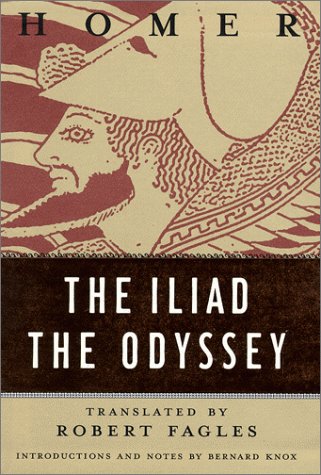Teaching Classical Literature Classically

“Poetry cannot, as Matthew Arnold fondly hoped, take the place of religion…What it can do
– when fully understood and articulated – is to restore human feeling. It can become a discipline
for that ordering of the soul that the Greeks called Paideia.”
Dr. Louise Cowan
THE CLASSICAL TEACHER teaches differently in at least four ways: he teaches for a different reason, he selects his materials based on those different reasons, he reads – and he has his students read – differently because of those reasons and materials, and he teaches differently for the same reasons.
The classical purpose for teaching literature is the same as the classical purpose for teaching anything: to cultivate wisdom and virtue so that the student is better able to know and enjoy God. Classical literature exposes the student to models of virtue. It also places demands on his intellect, thus developing his intellectual virtues. As the intellectual virtues are developed, the student’s capacity to know and understand facts, ideas, relationships, and persons is nurtured.
 Furthermore, classical literature cultivates what James Taylor and John Senior have called Poetic Knowledge. Poetic knowledge is the type of knowledge children gain when they read, e.g. The Chronicles of Narnia or Fairy Tales. It is an intuitive knowledge of the nature of things, but the reader may not always – or even often – be directly aware of what he is learning or how he is being nourished by it. Poetic knowledge removes the reader from the realm of pragmatism (love of power) and lifts him to the realm of genuine ideals (love of virtue). By presenting models of virtues, training the intellectual virtues, and nourishing poetic knowledge, classical literature cultivates wisdom and virtue in the student.
Furthermore, classical literature cultivates what James Taylor and John Senior have called Poetic Knowledge. Poetic knowledge is the type of knowledge children gain when they read, e.g. The Chronicles of Narnia or Fairy Tales. It is an intuitive knowledge of the nature of things, but the reader may not always – or even often – be directly aware of what he is learning or how he is being nourished by it. Poetic knowledge removes the reader from the realm of pragmatism (love of power) and lifts him to the realm of genuine ideals (love of virtue). By presenting models of virtues, training the intellectual virtues, and nourishing poetic knowledge, classical literature cultivates wisdom and virtue in the student.
Because of the classical purpose for teaching literature, classical parents and educators are careful in their selection of what they and their students read. Young children should spend little time on books used to teach decoding letters (i.e. phonetics). Their minds are far beyond what their decoding can reveal to them. Therefore it is imperative that parents and teachers read to children at a level BEYOND the child’s decoding skills. Children need to read or have read to them Bible stories, fairy tales, folk tales, fables, mythology, legends, nursery rhymes, and good poetry.
Poetry will appeal to children sensually long before it speaks to them intellectually. Fine. Let them hear the music of Shakespeare even if they don’t understand the words. As soon as possible children should be hearing and/or reading Homer, Virgil, Ovid, Dante, the King James Version (for literary, not theological, reasons), Shakespeare, Chaucer, and other genuine classics. If these books seem too hard, slow down. But don’t renounce the pleasure of the music for the obscurity of the words. Rather take your time. Don’t discard the bard for trivial tunes. By all means, use good books to prepare for the great books, but make sure the good books are good.
Which brings me back to my second point: be careful in your selection. Keeping in mind the purpose described above, select books that present models of the virtues to imitate. This does include virtuous characters who overcome evil, but it also includes virtuous writers who overcome the evil of sloth, self-indulgence, or greed to produce excellent art. Read texts that are beautiful and noble. Prefer stories that have been refined by time (Homer, fairy tales, and fables are classic examples of such texts). Present tales that fill children’s imaginations with metaphors: fairies, elves, hobbits, wizards, knights, damsels in distress, saviors, princesses, beasts, and transformations. Children interpret life through these metaphors (so do adults), so when the metaphors are unreliable (like many modern pictures) or absent, they interpret life amiss.
Classical educators and students also read literature differently. To begin with, the classical student reads texts rather than merely reading about them. It is the text and the ideas contained in the text that the student focuses on. He reads intensively and repeatedly. He explores the form as well as the matter of the text. He criticizes everything he reads in light of the single dominating law of propriety – are the form, language, plot, characters, settings, motifs, etc., appropriate to the idea expressed. This is simply another way of asking whether the artist was successful. The noblest ideas need the noblest expression. When students contemplate such noble ideas in a noble form, they are ennobled.
Therefore, classical educators differ in their approach to teaching literature. They use the didactic and Socratic approaches. Note that both approaches train the mind to think about ideas, one through contemplating models (didactic) and the other through exploring one’s opinions on the subject of the given text (Socratic).
By clarifying your purpose, deliberating over your materials, reading contemplatively, and teaching intentionally, you enable literature to fulfill its function as what Charles Grosvenor Osgood once called “means of grace.” Feed those souls!
This article was original published in The Classical Teacher, a publication of Memoria Press.











